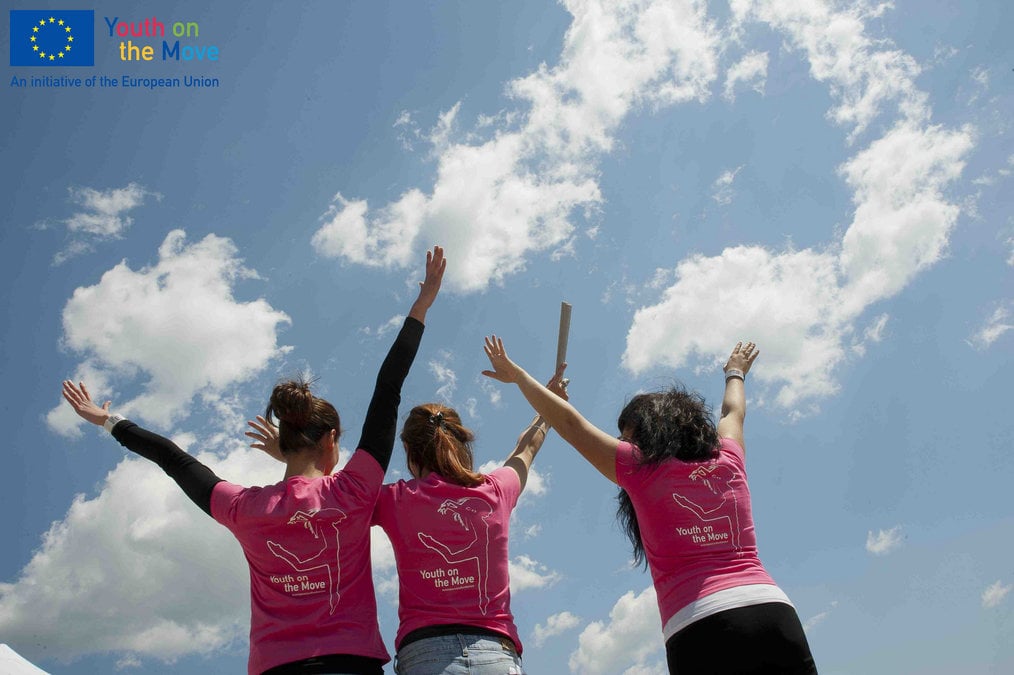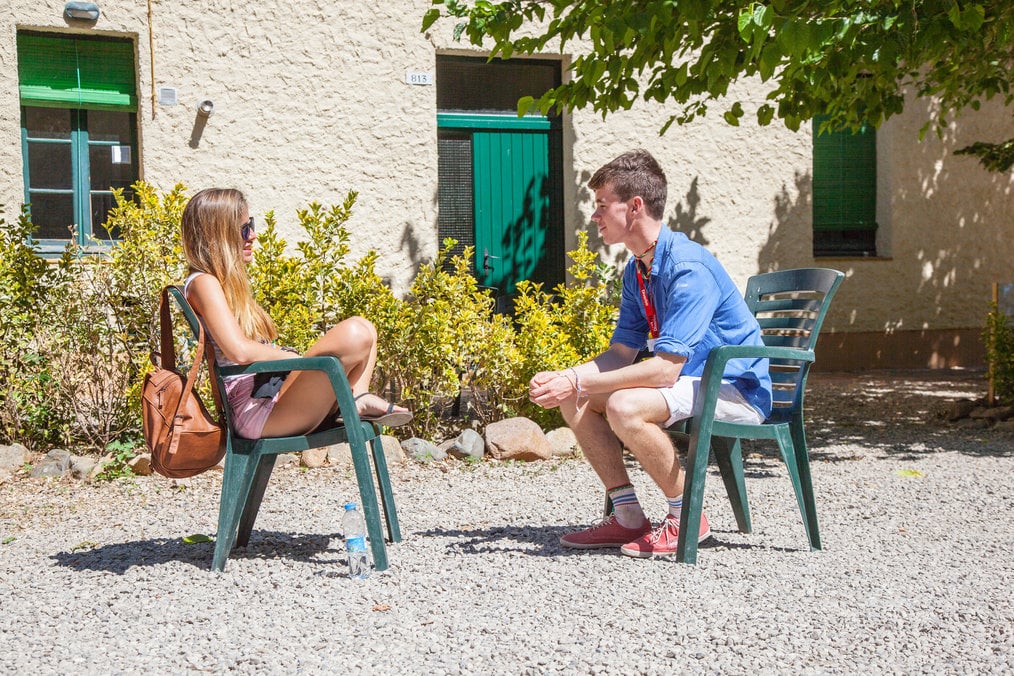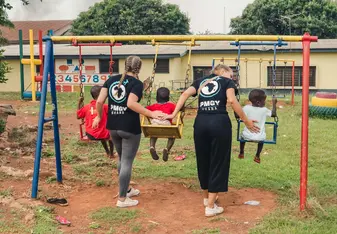How to Put Your Volunteer Abroad Experience on a Resume
Volunteering abroad is an opportunity for you to give back and make a difference in communities abroad, and inspire growth in you. Learn how to share that experience on your resume or CV.

On average, recruiters spend six seconds evaluating a resume -- an incredibly short period of time to send the right signals to this important audience of limited attention span.
Putting together a killer CV means you are able to successfully translate many facets of yourself onto a single piece of paper.
Putting together a killer CV means you are able to successfully translate many facets of yourself -- who you are, where you come from, what you have done, and why you do it -- onto a single piece of paper.
Without the ability to do this, you won’t get far on the aggressive job market field. You’ll come off as boring, unqualified, or both, and will rarely land the interviews that give you your best opportunity to shine.
Basic Resume Tips
Before we talk about how to put your volunteer experience on your resume, let’s tackle some resume basics:
Stick to one page. If seasoned professionals with 20+ years of experience can do it, so can you, my friend. Remember, the goal of your CV is not to document everything you’ve done since you were 18, it just needs to convey key skills, relevant experiences, and a general “hey, this guy or girl is really interesting” feeling in order to land you an interview.
Pick the right format. Clean and neat, with a hint of flair. I like Cambria, and no smaller than 10-point font please. The Muse has a few free or low-cost resume templates you can download or utilize for inspiration.
Get rid of generics. Of course you’re a hard-working, enthusiastic, ambitious team player. Next! Instead, think about ways to show, not tell your audience about what makes you who you are. Hard-working? Have a line or two that shows roles you took on outside of your job title -- for no additional compensation -- for the sake of learning and exposure. Ambitious? Don’t be afraid to highlight the small side business you run on the weekend.
Don’t use the same CV for every job you apply for. Even pros mess this one up. Remember, your resume is your tool to get your foot in the door for an interview. Make sure each line on your resume speaks directly to the position you want to interview for and tells the story relevant to that specific audience.
When it’s done, print it out and read it out loud to a friend. This helps you double and triple check for spelling, grammar, and typos.
Make sure it’s in PDF. Never submit your CV in Word format.
Tips for Articulating Your Volunteer Experience
Next, let’s explore a few points more tailored to beefing up that volunteer experience:
1. Focus on what YOU did
There's nothing less interesting than a resume that speaks to how great all of the organizations that the candidate has worked with are.
If I'm not sure what Ashoka does, I can Google it, but I can't Google what impact Brian had on Ashoka during his 3-month internship.
Actually, I don't care what Ashoka does, because I'm looking at this one page summary of BRIAN'S prior contributions to his world and how he could do potentially that for ME.
2. Use power verbs
Now that you know you need to talk about YOU and only YOU, use the right language to describe your contributions and keep my interest. “Managed”, “created”, and “led” bore me. Try “oversaw”, “produced,” “engineered,” and “spearheaded”. Now you're in the driver's seat. Now I'm hooked. Again, The Muse has a list of action verbs for your resume if you need further inspiration.
3. Narrow in on core skills
What were the key takeaways from each experience that you will apply to future work engagements? Focus on highlighting those on your resume.
4. Quantify the impact you had as a volunteer
Along with getting rid of generics, this takes what you accomplished from subjective to objective and makes it more credible to an outsider.
Come up with at least one meaningful measurement for each work or volunteer experience on your resume.
Did you collaborate on a team of 5, visit 15 villages, lead a group of 20, care for 75 monkeys, donate 400 pounds of medical gear, bike 2,000 miles, raise $25,000, or add 45,000 social media followers? Come up with at least one meaningful measurement for each work or volunteer experience on your resume and add it in.
Read more: Best Volunteer Abroad Programs for Young Professionals in 2022
5. Speak the language of your audience

As you do your research, you will learn how the organization you're targeting speaks about itself and its work. Adapt your CV to that tone and vocabulary.
For example, if you're interested in consulting, you should be using a lot of analyzing, leveraging, and value-adding, working with a variety of markets, stakeholders, and buckets, and creating plenty of deliverables, buy-in, and takeaways. If you're able to tell your story in their lingo, the importance of what you’ve done, paid or unpaid, is less likely to slip past them.
Get inspired with these volunteer abroad programs:
6. Think about where on your resume you'll put your experience
Where on your resume you include your volunteer experience largely depends on what you did, how long you were there for, and how recent it was.
For example, if you just got out of two years in the Peace Corps, by all means include it at the top if your resume under "relevant experience".
However, if you spent two weeks volunteering with sea turtles in Costa Rica several years ago, it doesn't deserve such a prominent spot. Put it under a "international experience" or "volunteer experience" section lower on your resume instead.
Especially if you don't have much actual work experience, but spent an extended amount of time volunteering somewhere, treat it like work experience.
7. Make sure you have created an active (vs. passive) resume
A passive resume says: “I’ve done a variety of things. I could probably do almost anything you ask me to do. Just give me a hoop and I can jump through it.” An active resume says: “Hire me because I do X really well. I have studied X, experienced X, got really good at X, and you can bring me on your team to be killer at X for you.”
Don’t fret if you’re not a computer programmer or graphic designer where X skills are very obvious. X skills could be project management, copyright editing, sales, research, translation, surfing, modeling, or jump-roping.
Just focus on something you do well so your reader doesn’t have to do all the work thinking about how they could make the best use of you. Despite popular belief, doing a little bit of everything does not make for a compelling hire.
8. Think about including a summary

This touches on the above-mentioned point. A summary of 2-3 sentences at the top of the page, as well as a dedicated section for skills, can help clarify your precise value proposition when it is also tailored for a specific position.
Your Resume is Your Story
Altogether, your resume is your story. It should weave together a cohesive and compelling overview of your history, experience, skills, and ambition without leaving room for your audience to guess as to where you might excel in their organization.
Regardless of whether you picked up your "expertise" volunteering or working, the same essential resume principles apply.
Regardless of whether you picked up your “expertise” volunteering, interning, working, or studying, the same essential principles apply to ensuring that you stand out in the application pool. This comes down to intelligently “angling” yourself so you come across as a professional who knows what direct value they bring to the table.



